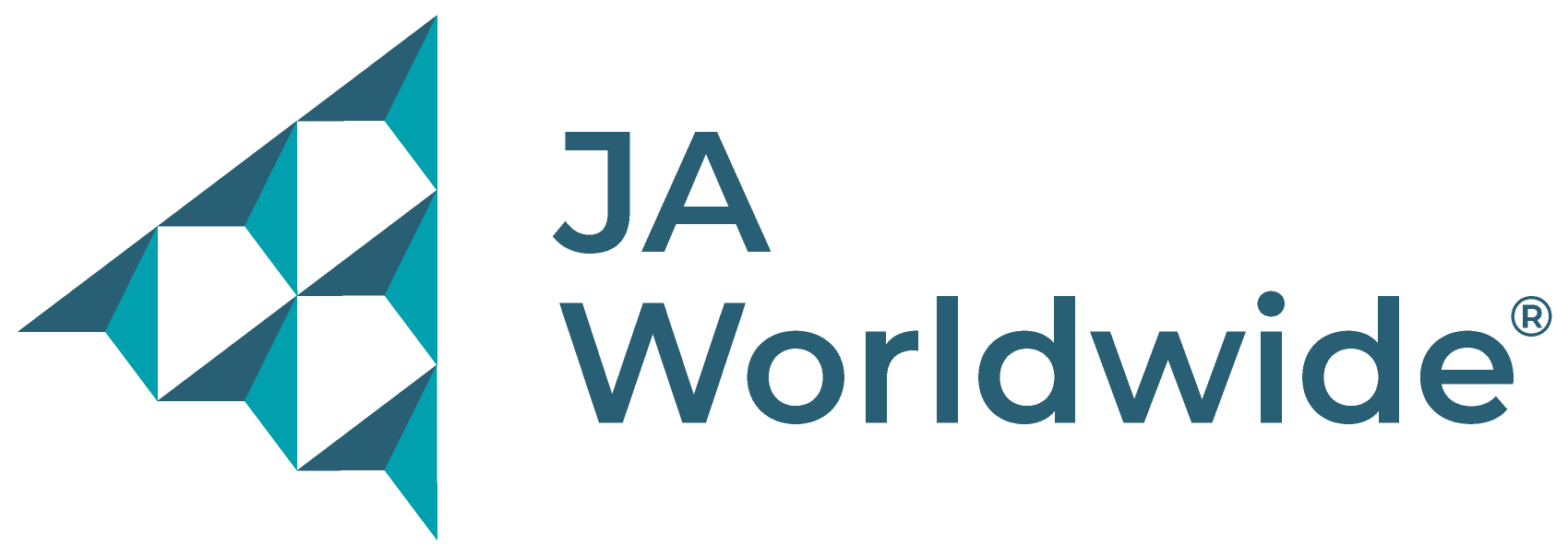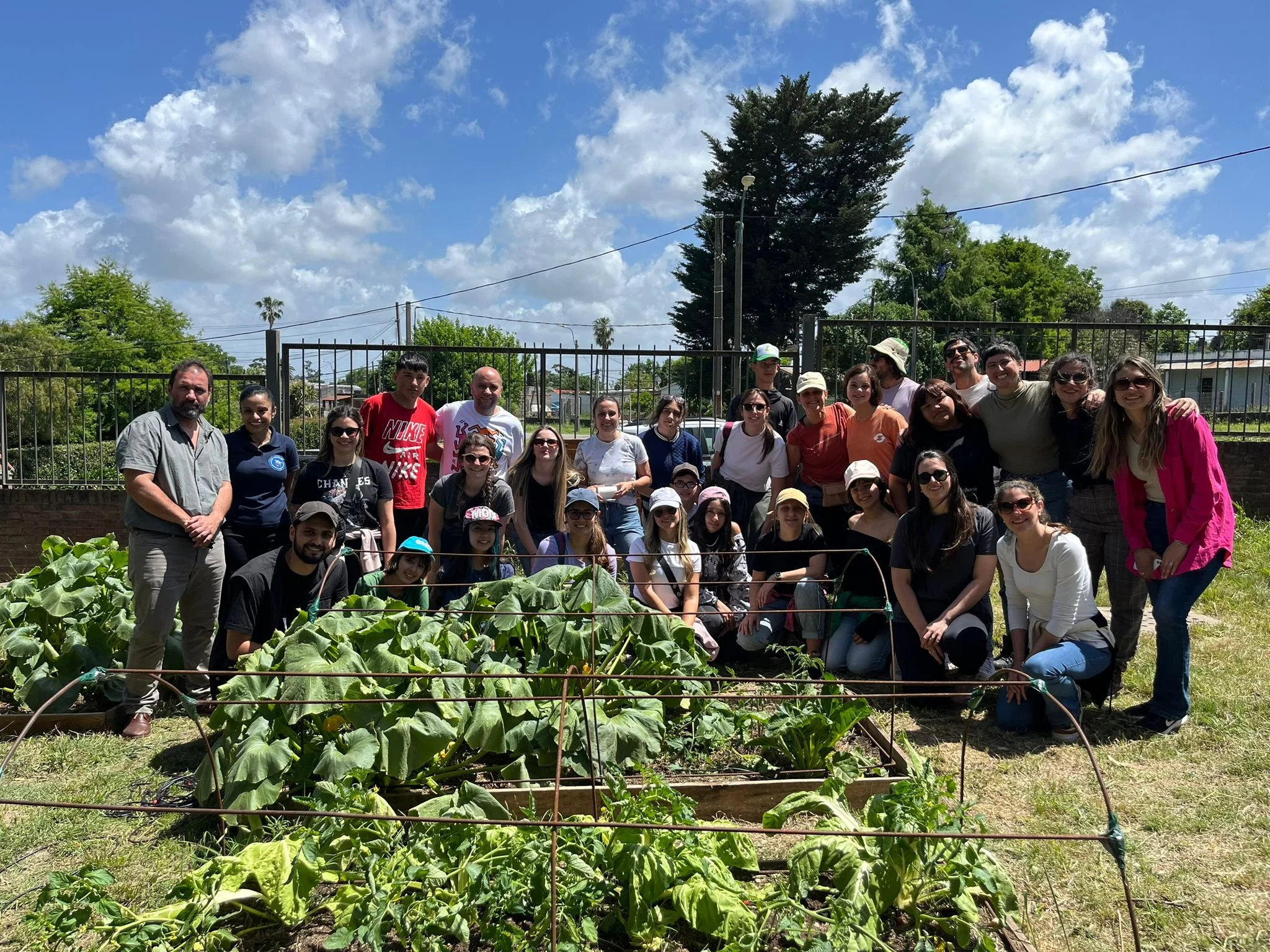Young Voices for a Sustainable Future
"Young Voices for a Sustainable Future," a collaborative initiative with BASF and JA Worldwide, integrates students from diverse backgrounds into global dialogue on sustainable development. This initiative stands as a testament to the power of youth, enabling them to not only understand the critical challenges facing their communities but also implement viable solutions. By focusing on local issues through a global lens, the initiative empowers students to contribute to the UN Global Goals, instilling a sense of responsibility and activism from a young age.
Now finishing its third year, the program is designed to equip the young participants with critical job skills, including critical thinking, problem-solving, and effective communication. By tackling issues like renewable energy, waste management, and biodiversity, students think creatively and develop solutions that promote a more sustainable and inclusive future. Young Voices for a Sustainable Future emphasizes the importance of interdisciplinary learning as it combines science, technology, engineering, arts, and mathematics (STEAM) education with social studies and ethics, thereby providing a holistic approach to understanding and tackling environmental issues.
At the heart of the initiative lies the belief in the untapped potential of young people. By providing students with the resources, mentorship, and platform to express their ideas, our partnership seeks to empower young people to take charge of their future. This empowerment is aimed at fostering a deeper learning experience where students are not just passive recipients of information but active participants in their education. This hands-on approach ensures that young minds are prepared to face the challenges of tomorrow and motivated to drive positive change in their communities.
Learn more about BASF’s commitment to communities and a sustainable future.
Read the Partnership Reports
Each year, our partnership grows. Click on one of the links below to read how JA and BASF are working together to inspire youth through our Innovation Challenge for a Just Transition.
“Through the project, we learned about sustainable development goals. We’re now passionate about solving problems related to sustainable agriculture and are so proud of our business idea to support farmers.”
JA and BASF: Empowering Young People to Build a Sustainable Future
Young people are the the world’s leaders, policymakers, diplomats, and professionals who will shape the world and drive sustainable development. They have a unique perspective, energy, and passion to address global issues like climate change. Their concerns, aspirations, and ideas are essential for successful sustainable development strategies.
Participating Locations
JA Brazil | JA Chile | JA Costa Rica | JA Greece | JA Hungary | JA Indonesia | JA Mexico | JA Nigeria | JA Philippines I JA UAE I JA Uganda | JA Uruguay I JA Vietnam
“It has been a great honor for us at BASF to help amplify the voice and power of the youth and give emphasis to the role they play in sustainable development. We’re inspired by and grateful for what we’ve learned from the participants while we accompanied them through the program.”
Learning Experience
Climate Workshop
In this team-based, hands-on workshop experience, learners investigate the impact of pollution on the environment. They explore climate change and its social consequences and imagine what climate adaptation and a just transition looks like for their community.
Innovation Challenge
Teams of students solve for the challenge defined during the workshop. They establish innovative and potentially viable solutions to community-related problems and challenges caused by climate change and the transition to a sustainable economy and society.
BASF Mentorship
Volunteers from BASF engage the winning teams of each National Innovation Challenge through six months of one-on-one mentorship. Volunteers coach teams as they implement their sustainable business solutions.
“Being part of the “Young Voices for a Sustainable Future” initiative gave me an intriguing experience as there are lots of new and fresh ideas coming from the younger generation to make a positive impact on a broader scale. I hope this program continues and reaches more students, since I am confident their ideas and innovations will make a difference in making the world a better place.
”
Revisiting the 2024 Virtual Global Exchange
The 2024 capstone element of the Young Voices For A Sustainable Future initiative was the Virtual Global Exchange. The event brought together winning teams from each National Innovation Challenge, and then each team created a video to showcase their ideas for sustainable business models. An international audience of students and BASF mentors offered feedback on each team’s ideas.
Following are the video submissions from the student teams that won their respective National Innovation Challenge in 2024.
Brazil
“ECOCLEY” is an innovative platform focused on recycling organic and inorganic waste, that offers practical reuse tips, helping users turn trash into creative and eco-friendly solutions. The app also provides an interactive map showing selective waste collection points in Belém and surrounding areas, making proper disposal of materials easier. In addition, it includes informational booklets and educational content that promote environmental awareness in an accessible and engaging way.
Mexico
Given “Re-Agua’s” committment to sustainable water management, the team is taking real action to reduce water consumption. Re-Agua is a water filtration and reuse system, capable of removing impurities from used water to generate a sustainable process. It reduced 20% water consumption in the local school and is looking for partnership to expand its impact.
Nigeria
“PJ Ventures” created KBLOOM, an organic fertilizer formulated to address the specific needs of Nigerian farmers. It is composed of a blend of common local waste organic materials, including animal dung water which provides essential nutrients and microbes that improve soil structure and fertility and saw dust water which supplies carbon, promoting beneficial soil organisms and improving water retention and dry algae which is rich in trace minerals and vitamins.
Philippines
“Project Panubli” is designed to create bioplastic mulch from hornwort, water spinach, and papaya peelings as an eco-friendly substitute for Polyethylene-based plastics used in agriculture. This project addresses the reduction of plastic pollution, prevention of flooding, and encouragement of sustainable farming by formulating these bioplastics for durability, biodegradability, soil impact, and whilst addressing climate change. It calls for the collaboration and unity of farmers, communities, and local government units to replace conventional polyethylene-based plastic mulches, aiming to inspire sustainable practices and support a greener, more sustainable agricultural sector, whilst further studying for future innovations.
Thailand
“LOCOL” operates in Nan, one of the world’s largest cocoa plantations. Climate change has impacted cocoa production in the area, reducing the quality of the crop. LOCOL leverages organic waste from these lower-quality cocoa plantations to produce a protein-rich livestock feed that reduces slow digestion, consequently benefiting greenhouse gas emissions. Additionally, combining the lower-grade cocoa with tannins allows the production of high-quality natural cocoa derivatives for local commercialization.
UAE
“Sure” acquires unsold products from major retailers at reduced costs or donations if they would like, preventing them from becoming waste. Products in good condition are resold on the platform or used as funding resources for young-sustainable startups for a return of commission, while unusable items are upcycled into high-demand, sustainable products. Unlike clearance sales that devalue products, this model repurposes and resells items in a way that enhances brand perception.
Uruguay
“Villa García Sustentable” is a circular economy project, which includes the construction and maintenance of an organic vegetable garden. The organic waste generated will be part of a sustainable circular agriculture cycle, using nature as inspiration. It can allow small producers in the area to improve their production process, allowing them to have a sustainable and efficient process, as well as the entry of new technical specialties to the process of organic gardens. Created by and for students of the center, generating a 100% sustainable circular economy cycle.
“My expectations were exceeded! I was very happy with the participation, with the support and performance of JA, and with the receptivity of the students. I found it a very positive exchange that I will take with me forever and that I will recommend to other colleagues whenever possible.”












